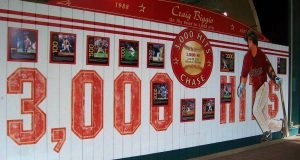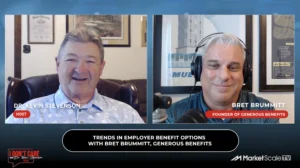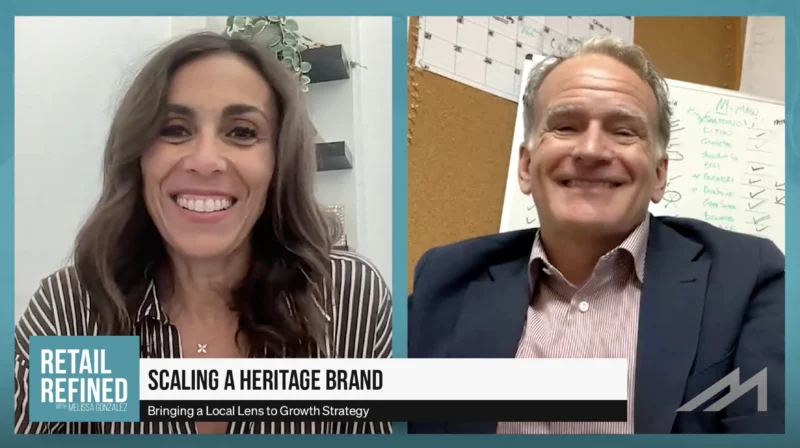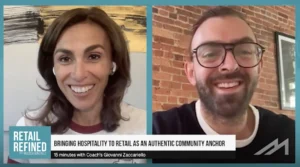If You Measure It, The Customers Will Come with Matthew Tate of Buxton
Mathematical physicist William Thomson (aka Lord Kelvin) was widely quoted as saying: “To measure is to know.” The real challenge is knowing what, exactly, to measure when formulating a plan. On today’s podcast, our host spoke with Matthew Tate, Senior Account Executive at Buxton.
They discussed how analytics can dramatically change the perspective on “standard” protocols, the way in which current shopping malls might be re-purposed in the future, and how faith in numbers is only as good as the numbers themselves.
Sean Heath: So you are a number’s nerd just like I am and analytics is really kind of not a hobby. It’s just a thing you really, really enjoy. Oh, I guess you could call it a hobby. I don’t see anything wrong with that. Tell me, what is it about data and analytics and what is it about that just grabs your attention that just speaks to you?
Matthew Tate: So yeah, maybe it stems from my love for baseball. Baseball is a data statistically driven sport obviously. A lot of us know that especially those of us that are true baseball or seamheads. We love the numbers and we love diving in a very deep level, but the fact that you could take a standard defensive approach and shift guys, all guys to one side of the infield or outfield based on numbers and analytics and what we’ve seen in the past and do what almost visually looks like suicide or like you’re throwing the towel, but yet it ends up probably benefiting you and your mean more so in the long run than it does hurting you. I think that’s where my love and my passion for data and analytics came from is truly from baseball.
SH: Well, you know, that’s something that for example the Houston Astros system is really starting to become well-known with applying analytics to what would become considered non-traditional defensive alignments using shifts for right-handed batters which you never see. That’s even starting to happen with their Double-A and Triple-A clubs on the regular. So I wonder, do you think that’s a function of finally being able to measure something? I mean you don’t come up with that sort off-kilter approach until you have some metrics and say, “Hey, this might work.” Is that just a function of being able to measure things more accurately now?
 MT: Yeah, I think, to make a data-driven shift or change, whether it’s baseball or any way, shape, or form, you’re making this shift or change. You have to have data that suggests you should do it and then you have to do it a couple of times or a lot of times to then study that data to see did that work or not, right? So yeah, the Astros are one of the frontrunners when it comes to data and analytics and even stating in Houston that the Rockets in basketball also are being data and analytics team as well.
MT: Yeah, I think, to make a data-driven shift or change, whether it’s baseball or any way, shape, or form, you’re making this shift or change. You have to have data that suggests you should do it and then you have to do it a couple of times or a lot of times to then study that data to see did that work or not, right? So yeah, the Astros are one of the frontrunners when it comes to data and analytics and even stating in Houston that the Rockets in basketball also are being data and analytics team as well.
MT: So yeah. We’ve had some pioneers and said, “This is what you need to do and we need to try it,” then you have some traditionalists that say, “No, we’re not doing that.” But over time, you start to get data and you can kind of measure your response, I guess, in the accuracy and the win percentage and just all the attributes that come back from say for metrics or from some of the deeper dive analytics and now you can really gauge, “Was this helpful for me or did this end up hurting us more than it helped us?”
SH: Now, we’re talking about this in sports terminology, but this could very easily be applied to any participant in the retail space. Tell me about how analytics are starting to literally alter the phase of the industry?
MT:Yeah, that’s a great question and what we do in my line of work is we build site selection models for retailers. And so in order to do that, we have to have data from all the retailers out there that we’re going to build a site selection model for. So store data, sales data, customer data, transaction data, site survey data, any kind of data that you can think about, loyalty customer data, any of that data we can put together to learn trends and study who’s coming into a restaurant, who’s going to shop at a traditional retailer, and then we can use that to understand where there’s gaps in the market or opportunities as well.

MT: On the flipside and probably what we’ll spend I would think the majority of the time talking about what I do on a daily basis is we’re helping cities and communities across the country leverage data, just like the retailers do, to understand what retailers are good fit for their community because as consumers, when we go out to eat or when we go to shop, we think about where we’re going to go eat. We don’t think about the city boundaries. We don’t think about the county lines that we’re crossing. We just think, “Okay, I’ve got time for fast food tonight because I’ve got a busy day, so let me just go get a quick burger,” or, “I’m going to take my wife out for a nice white-table-class steakhouse and I’m going to travel a little bit further for that.”
So everything we’re doing and what I do on a daily basis is studying that consumer habit and the behavioral habits and it’s really fascinating as we’ve kind of branched from baseball and basketball to now talking about retail and even more so what we’re doing in the communities. It’s helping communities get smarter and get better and not just pick up the phone and try and call any retailer to recruit them to their community but understand where are the gaps in our community, where are the gaps in retail category so that we can close that gap of essentially sales tax leaving our community.
SH: For example, there is a pretty serious fear of Amazon and by fear I mean unknown. We don’t know exactly what it’s going to be, we don’t know exactly how influential it is going to be in the future, but we can definitely see how influential it is now. How do you take that “fear” and present it in a way that doesn’t just absolutely terrify a municipality?
MT: Yeah, that’s a great question. That’s probably one of the number one questions we get across the country is kind of a question around the Amazon effect and what’s that do to our current businesses and what’s that do to our recruitment potential. One thing that we share with communities across country, I believe it was 2017 Amazon made up somewhere between seven and a half to nine maybe ten percent of all retail transactions in the United States.
So for some communities, it’s like, “Oh, okay, well, that’s not a very big number.” But for the right community, you look at them, they go, “Wow!” Okay, so what Amazon is doing now it might just be in its infancy and those numbers are only going to double and maybe triple and quadruple over the next few years. So there’s no signs of Amazon slowing down. But when we look at some other signs that might give us a little bit of encouragement, Amazon, who of course got started as an online bookstore, they’re entering the market, as you may know, with some brick and mortar bookstores. They’re also getting into the grocery space as well.
MT: So even a massive online retailer like Amazon who most of us would say, “They have no business opening a brick and mortar store.” They’re still opening brick and mortar as well. So that can be encouraging to communities across the country. The other thing, the big trend that we’re seeing, “Is people really focused on recruiting retail or at least wanting to recruit retail that is Amazon proof?” So experience-based retail, gyms are very popular right now, gym and healthcare, type of concepts are very popular, and then we’re even starting to see stuff like darts and miniature golf and top golf, and stuff like that, you know kind of make some of those old traditional types of retail experience, make them hip, put them into a nice social setting, and do stuff that Amazon can’t compete with from an online standpoint.
For the latest news, videos, and podcasts in the Retail Industry, be sure to subscribe to our industry publication.
Follow us on social media for the latest updates in B2B!
Twitter – @RetailMKSL
Facebook – facebook.com/marketscale
LinkedIn – linkedin.com/company/marketscale









